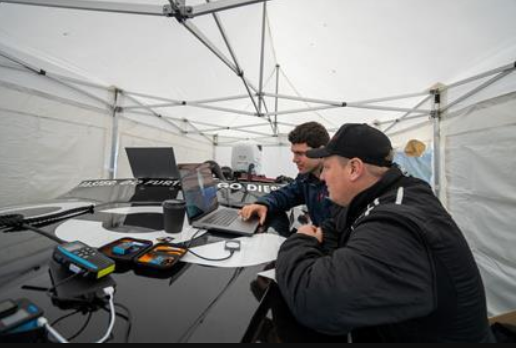UK engine specialist uses hydrotreated vegetable oil to break its own speed record

Published data from Cox Marine’s record-breaking Project Pegasus at Coniston Records Week in the UK have revealed that running the boat on HVO (Hydrotreated Vegetable Oil) fuel offers a net CO2 saving of 94% over a comparable petrol outboard.
The Cox Marine team and its vessel Pegasus hit the news earlier this month by clinching the World Record title for the world’s fastest diesel outboard. The team beat its own records three times throughout the week, achieving a final average speed of 62.84mph, measured across the kilometre-long flying start course on Cumbria’s Coniston Water.
“Of course the whole team are justifiably delighted with 62.84mph from a totally standard CXO300 pulled straight of the production line, but the real message is what the achievement says about HVO, other ‘future fuels’ and the clear benefits they can bring,” says James Eatwell, Cox Marine’s head of R&D.
“Every second the motor ran on Coniston, from early shake down runs and prop and trim optimisation runs, to final record runs was data recorded. We ran the engine on both HVO and diesel during the week, and it’s important to state that in terms of the engine’s vital statistics, including oil and water temperatures, vibration, and of course RPM and top speeds achieved, the data showed comparable results between the HVO and marine diesel.
“In emissions testing prior to Coniston we actually saw a 40% reduction in particulate matter emissions in running a CXO300 on HVO instead of diesel, tying in accurately with claims made by our HVO fuel provider and suggesting more complete combustion was being achieved with the HVO,” he adds.
This is an important first point to make about HVO, says Cox Marine, describing it as a true ‘drop in replacement’ for conventional diesel. Tanks and fuel lines need not be cleaned when changing between the two fuels, and the CXO300’s ECUs (Electronic Control Units) will automatically reset and optimise the engine for the fuel in use, whether HVO or diesel just as they also do for the slightly different grades of diesel available around the world.
“We wanted to demonstrate that power and performance indistinguishable from fossil fuels can still be achieved without damaging our environment,” Eatwell adds. ”It’s one of the founding principles of Cox Marine and continues to drive our pursuit of innovation through technology today. We couldn’t think of a better forum in which to emphasis this, than vying for a World Speed Record and simultaneously debuting the CXO300 use of HVO fuel.”
Backed by a solid base of private institutional investors, Cox Marine designs and builds marine diesel engines from its UK headquarters in Shoreham-By-Sea. The company is supported by a worldwide distributor network made up of 30 distributors covering 100 countries.


.png)


